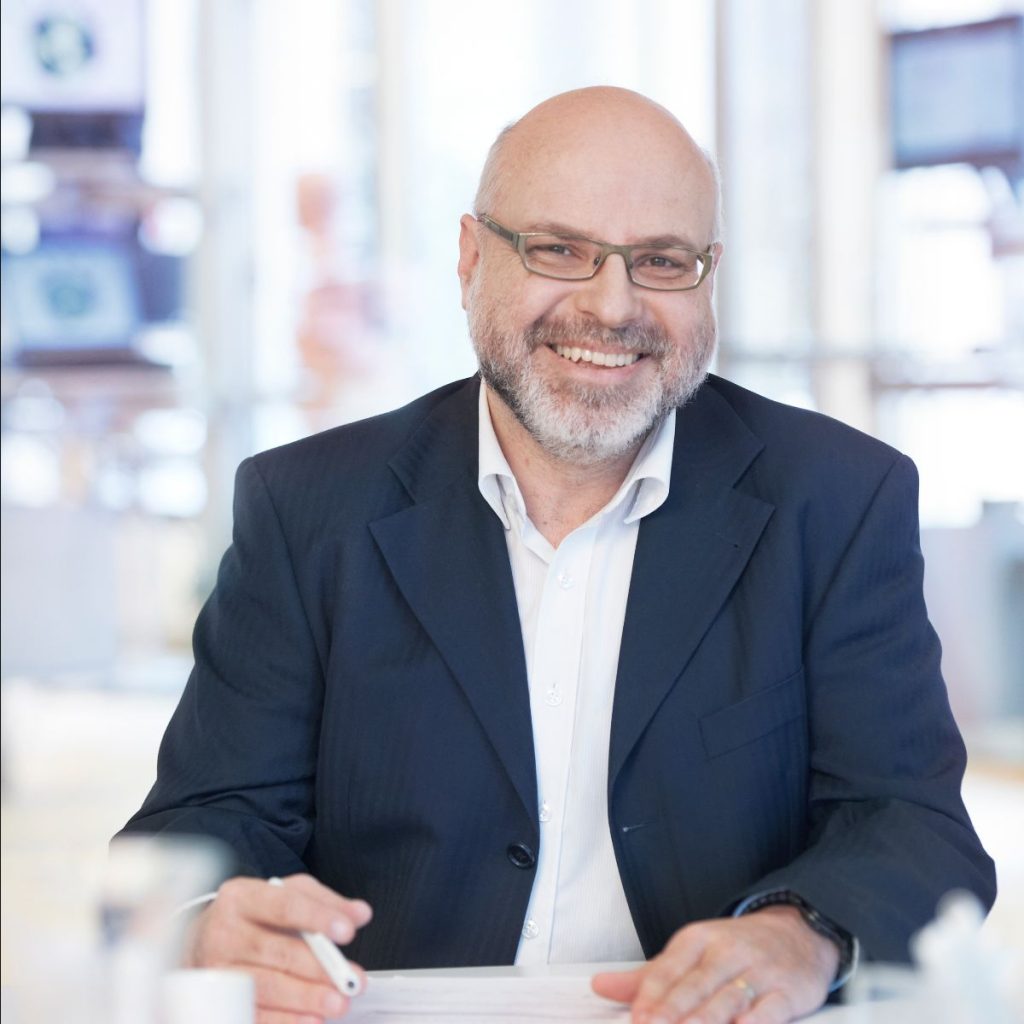Stephan Schneider: It’s important to step back and look at the bigger picture.
Quantum computing has come a long way in just a few short decades. It used to be a purely theoretical discipline, but now we have the tools and technology to help humanity achieve breakthroughs in science, medicine, and education. Stephan Schneider, a senior executive innovation consultant at the Think Lab Client Center at IBM Research in Zurich, Switzerland, has a treasure trove of knowledge in this area.
The Think Lab provides a forum for discussion with IBM’s leading researchers for decision makers in various industries, politics, and academic circles on emerging societal and technological trends. As an innovation and trend expert, Stephen meets and coordinates with business and industry leaders from around the world, facilitates hundreds of innovation workshops in the industrial, electronics, automotive, chemical, petroleum, and telecom realms, and reflects on emerging technologies and their potential impact on businesses and society. Quantum computing, a young discipline in and of itself, has the potential to help us answer a myriad of questions surrounding today’s most complex challenges.
“As an ambassador,” Stephan told Sonophilia, “I’m very much engaged in any kind of requests and questions, be it internally in our company, but also with clients or institutions who are interested in understanding what is different with quantum computing than with classical computing and what are the opportunities of this technology for the future.”
Such opportunities involve using quantum mechanics for running calculations, whereby a quantum system may have the unique property to run exponentially complex algorithms much faster than a classical system. Nature is built on quantum physics. Stephan explained the promise or expectation of the technology is that we will be able to do chemistry or material science much more precisely by simulating on a quantum system.
“In the optimization space, for example,” he noted, “or in machine learning and AI it has been shown already that a quantum system could improve classification of datasets.”
However, part of Stephan’s job is to be able to look at both sides of the same coin with equal parts understanding and impartiality. Society undoubtedly faces some key innovation challenges, most prominently the speed at which the information technology space moves forward amid all the digitalization. How can we adapt and integrate these technologies—or the possibilities of these technologies—into businesses? Sustainability is another challenge.
“It’s not just a one-time effort to adopt the technology,” Stephan explained, “but it’s really a continuous improvement and a continuous innovation for companies. Innovation and IT don’t happen isolated; it really happens all over in different places. Just look at society, for example, how we use digital services today on our smartphones. The challenge for companies is, how do I adapt this technology fast enough into my work processes?”
With 30 years in IT under his belt, Stephan is well-versed in innovation trends, creativity in entrepreneurship, the future of education and work in technical professions, the computing of tomorrow, and its implications for human development. He predicts that we’ll have an increasingly large number of companies with artificial intelligence capabilities, as well as a major amount of available data and information.
When it comes to a lifelong learning process and education in general, Stephan believes we’ll see an uptick in digital assistance to help us sort out relevant information. Continuous learning will presumably happen with quite short innovation cycles to adapt new capabilities of information technology.
“Quantum computing is probably my largest inspiration,” Stephan said. “You see from scratch how a completely new technology gets built, adapted, and integrated into new ecosystems. We’ve matured classical information technology over the last 30 years. Now there’s s a completely new technology, where we came from a purely scientific starting point all the way to how to embed this technology into businesses, how to train people to use the technology and learn about it. So far, it was more incremental, and now you really see certain quantum leaps, if you like.”
Stephan was invited to facilitate a discussion on quantum computing with Sonophilia in the summer of 2019, and was blown away by the diversity of the audience and the opportunity to present his projects and insights to non-technical people. The “spirit and the mindset of so many bright people who are really interested in learning, engaging, and thinking together” was the groundwork upon which he became a Sonophilian.
“Creativity, especially in my work, is really about connecting the dots to see the bigger picture. Sometimes it’s important to step just one step back and see what is happening, how things are happening, why they’re happening, and how they can be addressed. Creativity is really using all your senses and knowledge together with your experience and experience from others, from other disciplines and with diverse backgrounds. It’s essential to have an open, broad mind and see the different dependencies. But also to execute – to pick up the ideas and bring them into something real.”
Be curious. Ask questions. Be proactive. These are the pillars of Stephan’s motto for success. His passion lies with advising and guiding people and startups to make a change and move forward with their ideas. After all these years, his excitement for what’s to come in science and technology hasn’t wavered.




